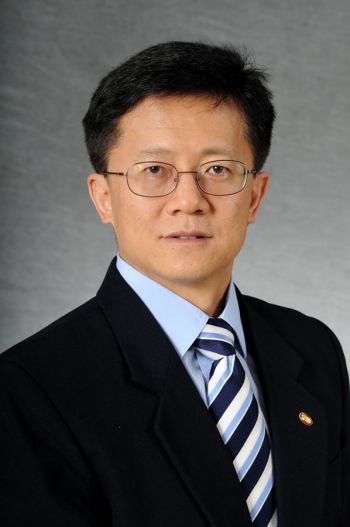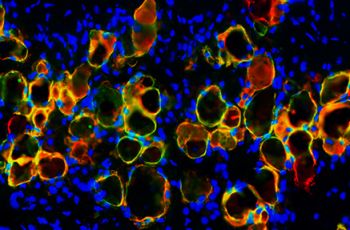
WASHINGTON (Nov. 26, 2013) – Chemotherapy and radiation therapy are often used to kill cancer cells by causing irreparable DNA damage. However, some cancer patients resist chemotherapy and radiation due to a highly active DNA damage repair system. Their bodies are able to repair the damage caused by chemotherapy and radiation, allowing their cancer cells to live on.
Wenge Zhu, Ph.D., assistant professor of biochemistry and molecular medicine at the George Washington University School of Medicine and Health Sciences, has received a $720,000 Research Scholar Grant from the American Cancer Society to identify a new pathway to regulate DNA damage repair in cancer cells, which may provide a new way to help cancer patients who are drug resistant.
“This research is very important to understanding the development of cancer and is also important for cancer treatment,” said Zhu. “If we understand the DNA damage repair pathway, we can find ways to inhibit repair activity, and work on finding a solution to this type of drug resistance problem.”
With this grant, Zhu will research the mechanism by which multiple genes regulate DNA damage repair in cancer cells. At the end of the project, he hopes to not only expand knowledge and understanding of cancer formation, but also open new avenues for developing therapeutic strategy for cancer prevention and treatment.
“Once we understand DNA damage repair in cancer cells, then we can design strategies to talk to this pathway for cancer therapy,” said Zhu. “In the future, we may even be able to use small molecules to target these genes to treat cancer.”
His project, titled “The Role of And-1 in DNA Damage Repair,” will be funded through June 2017.
Wenge Zhu, Ph.D., B.S. was supported by a Research Scholar Grant, RSG-13-214-01-DMC from the American Cancer Society.


